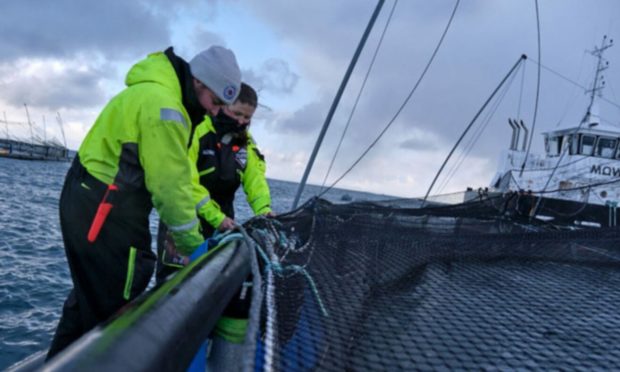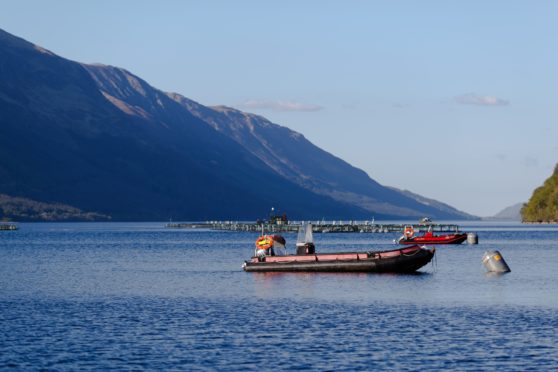Global salmon farming giant Mowi is aiming to halve the number of flights taken by its staff by cutting out “unnecessary” trips.
The Norwegian group, which operates more than two dozen sites in the Highlands and Islands, said it had set ambitious new business travel targets after learning lessons during the Covid crisis.
Mowi outlined its plans as it released figures showing a record high harvest volume and a huge leap in earnings from its Scottish farms in the second quarter of this year.
The group, which is the world’s largest farmed fish producer, also has operations in Norway, Canada, the Faroe Islands, Ireland and Chile.
Pandemic showed alternatives to business travel
In a statement with the results, directors said: “The Covid-19 pandemic has shown us that there are alternatives to business travel and as a result we are making changes to improve our travel policy.
“We have set ourselves ambitious targets for permanent reductions in business travel.
“By reducing unnecessary travel, we aim for a 50% reduction in business flights throughout 2021-2022 which will benefit the environment and reduce Mowi’s global CO2 emissions and contribute to our target of reducing our CO2 emissions by 35% by 2030.”
Mowi was contacted for a comment on the number of flights its staff take annually.
Group’s earnings and harvest leap in Scotland
At 19,162 tonnes (gutted weight), total harvest volume from Mowi’s Scottish sites in the second three months of 2021 hit a record level for the second consecutive quarter.
It was up from 14,572 tonnes for the same spell in 2020 and operational earnings before income tax (Ebit) also doubled to £25.6million from £12.2m over the period.
The company said the harvest volume and higher prices, as well as improved costs and “biological performance” had helped boost earnings.
It added that, while “biology” had “in general improved compared to the second quarter of 2020,” levels of cardiomyopathy syndrome (CMS) remained at a “relatively high level of detection.”
“Incident based mortality losses” in Scotland fell from £2.3m in the second quarter of last year to £1.3m.
Mowi operates 25 sea farms in the Highlands and Islands, as well as four freshwater loch sites, a harvest station in Mallaig and a processing plant in Fort William.
The company, which also has a facility at Rosyth, employs around 800 people in its Scottish operations.
Earlier this year, it announced it had agreed a site swap in Harris, in the Outer Hebrides, with the Scottish Salmon Company (SSC).
Strong global demand drove salmon prices higher
With strong demand for salmon driving prices higher in all markets, Bergen-based Mowi’s total Ebit for the three months rose to £117m, from £85m in 2020.
Chief executive, Ivan Vindheim, said: “Demand for salmon has strengthened as Covid-19 measures have become less restrictive in most countries.
“The demand response was impressive during the quarter with approximately 25% higher global salmon prices year-on-year despite a relatively high global supply growth of 9% including frozen inventory release from Chile.”
Spot prices for salmon almost doubled in the Americas during the period and soared by 18% in Europe.

